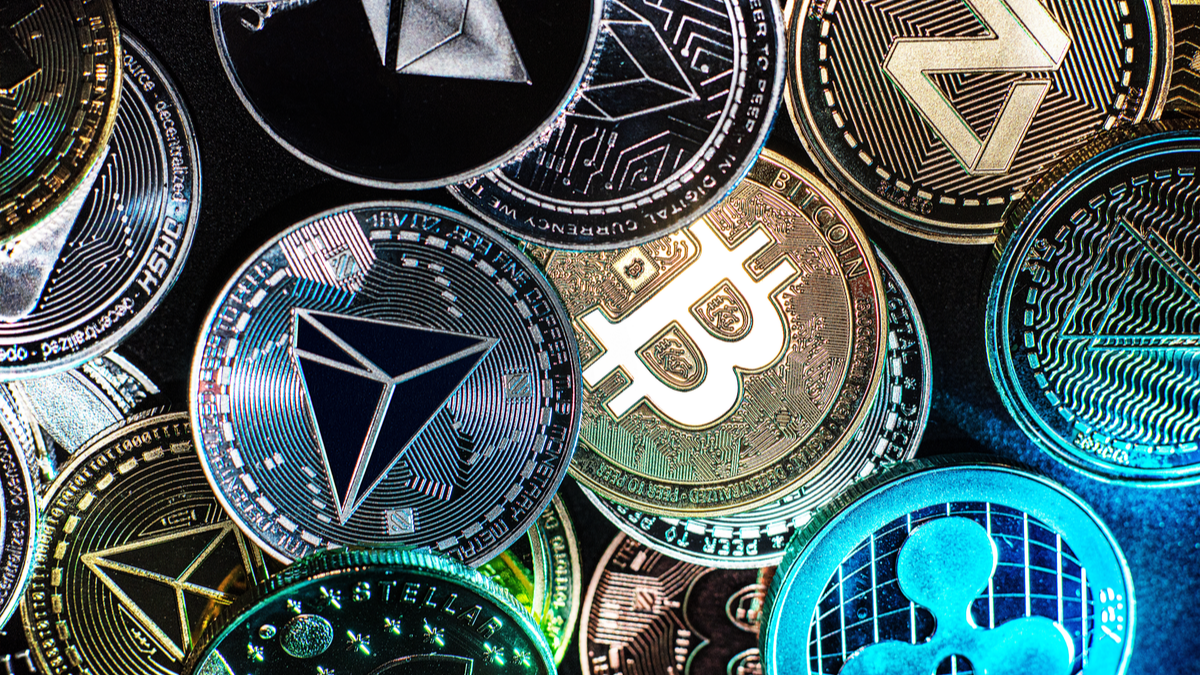Quick Links
Tokens and coins are similar. The difference between a coin or a token may be a technicality, but understanding the difference can help you better understand how blockchains and cryptocurrencies function.
Token vs. Coin: Similarities and Differences
Coins and tokens are very similar in most regards. Both are a type of cryptocurrency. Both rise and fall in price. And both use blockchains to validate transactions.
The primary difference between a coin and a token is found at the blockchain level. A coin is the default cryptocurrency of a blockchain. For instance, Ether (ETH) is the default currency on the Ethereum blockchain.
When a cryptocurrency uses or "borrows" another blockchain's network, then it is considered a token. Tokens have their own price, name, and utility that differs from the native cryptocurrency. Transactions made with tokens are eventually settled on the blockchain that they use.
Tokens Use Smart Contracts
Ethereum has become the most popular blockchain for tokens because of its programmable smart contracts. Developers can program their tokens with these smart contracts so that when particular conditions are met, certain parts of the smart contract are executed. For example, Basic Attention Token uses smart contracts to reward people for watching an online advertisement. When a user of the Brave browser agrees to the ad, then they are given BAT.
Ethereum's programmable and flexible smart contracts are part of the reason why it has become the world's second most valuable cryptocurrency. A look at the top tokens shows that nearly all run on the Ethereum blockchain.
Perks of Tokenizing
Developers choose to tokenize for many reasons. First, it is simple and fast. By using tokens, a new blockchain doesn't need to be created. Designing a blockchain is extremely tedious and demanding.
In addition, since tokens use another cryptocurrency's blockchain they do not need to start with a small user base. Blockchains become more secure and reliable with more participants. Instead of trying to find new participants, tokens can utilize existing blockchains like Ethereum or Binance Smart Chain that have plenty of users.
Types of Tokens
There are various kinds of tokens. And because tokens rely on programmable code, developers can customize and tweak this code to do an infinite amount of things. As a result, it can be difficult to categorize tokens, but most fall into a few notable groups
Governance tokens are one category. Owners of governance tokens can vote on decisions within various decentralized finance applications (dApps). The more tokens one owns, the more power their vote holds. A popular example of a governance token includes decentralized exchange Uniswap's token (UNI). Voting topics can include fee prices, upgrades to the network, and reward quantities.
Most tokens fall in the category of utility tokens. There are a multitude of utility tokens that each have unique purposes. Chainlink (LINK) incorporates real-time data like traffic and weather into smart contracts. Arweave (AR) is a new, secure data storage solution that incentivizes users to store data for long periods of time. Users are rewarded with an AR token the longer they store data.
One of the most popular utility tokens are non-fungible tokens (NFTs). NFTs use smart contracts to prove ownership. Most use Ethereum, but other blockchains like Tezos (XTZ) and Solana (SOL) have expanded their NFT networks as well.
Despite the name, stablecoins are actually a type of token known as commodity tokens. Commodity tokens are backed by assets that have an independent value. They can be tied to the price of the US dollar, gold, or even oil. The two largest stablecoins, Tether and USD Coin, are built on the Ethereum network.
Security tokens are one other type of token. They are similar to stocks except they are based on a blockchain. Security tokens represent ownership of an asset. This asset could be a company, real estate, or even a car. Security tokens eliminate the delays and fees that are typical of brokerages.
Tokens Today
Tokens are one of the most creative innovations that have risen out of the evolution of cryptocurrencies. They fill the gaps most blockchains leave behind. As blockchain and cryptocurrency use cases progress, tokens will as well.
Because it is fairly simple to create a token, there are tens of thousands of tokens. Many serve extremely useful functions. However, there are even more that lack any real purpose. Most of the memecoins that have come out in the last few years are technically tokens. Be cautious and always research any token before purchasing.


